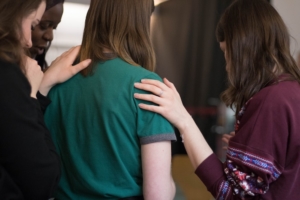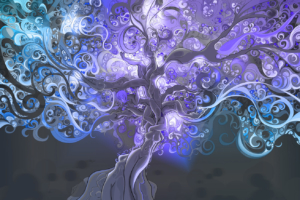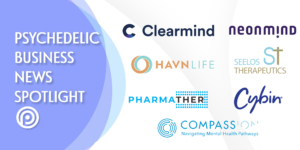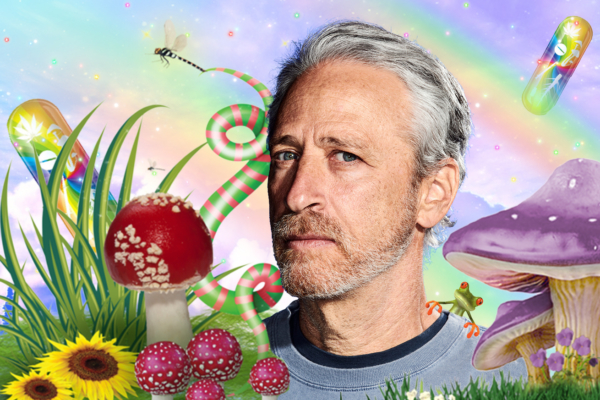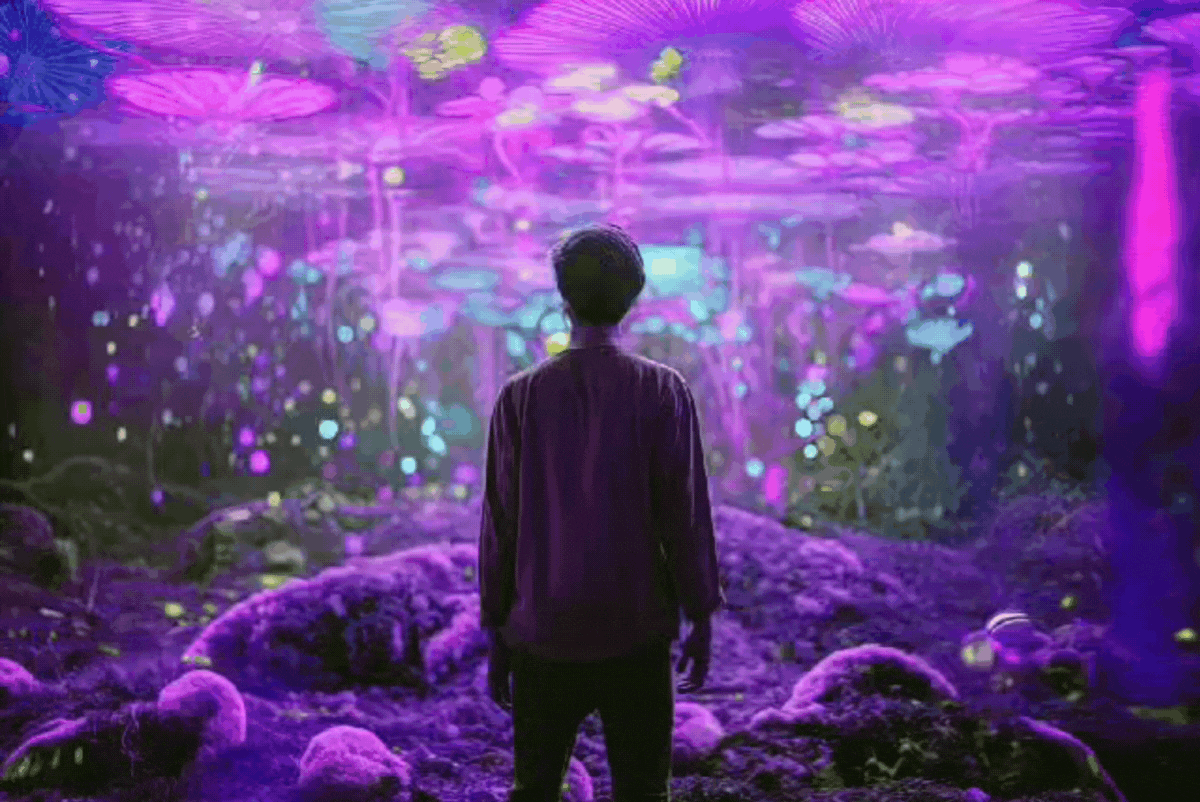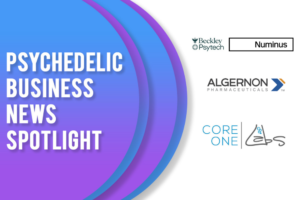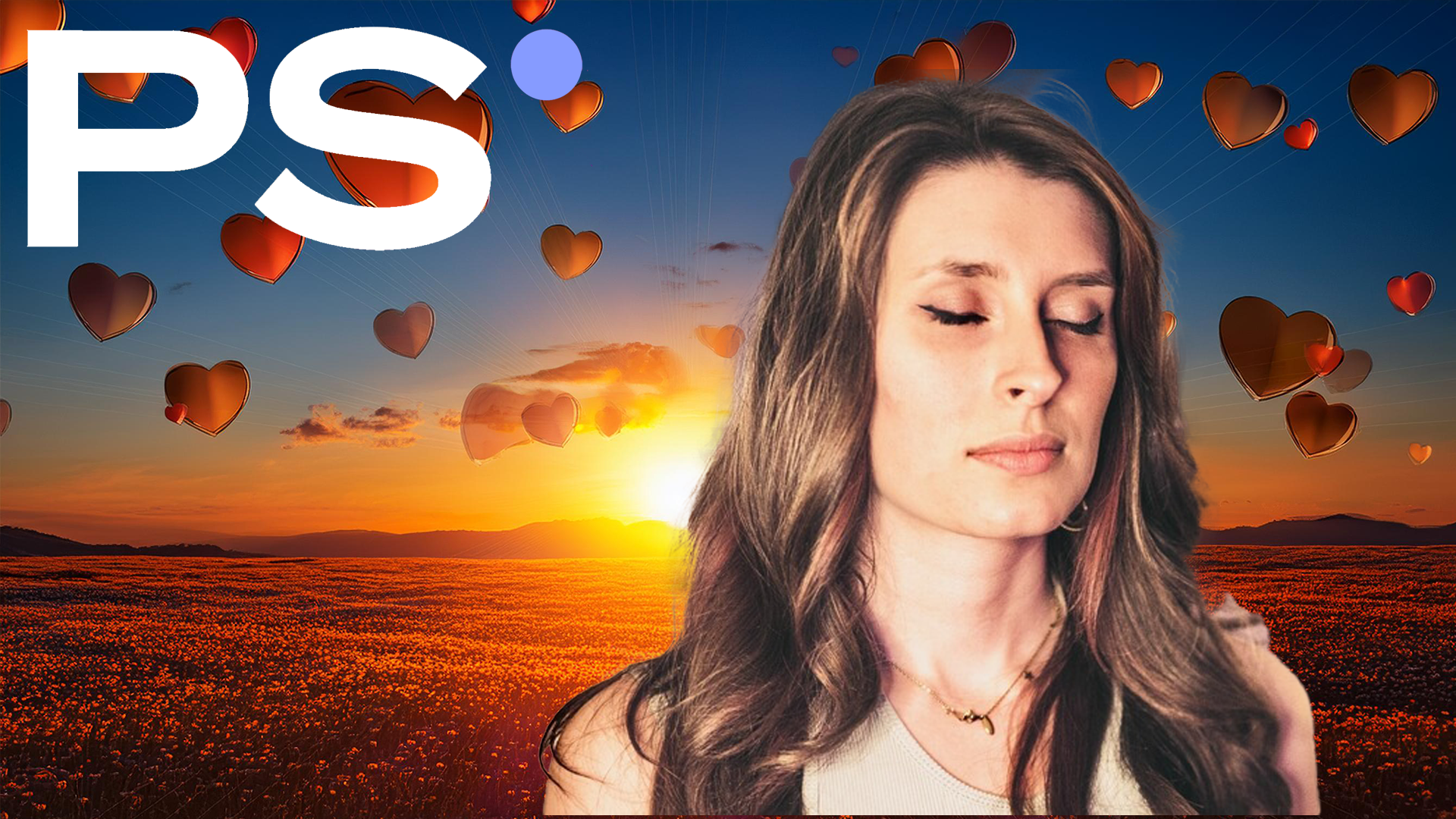
You’re at a cocktail party and you notice a young woman who eats the last olive with satisfaction, laughs a little too loudly at a questionable joke in the corner of the room, and, with a beaming smile, comes up to you with her eyes flashing. As she raises an eyebrow after learning your name, she asks you about death and perhaps what you think happens after we die.
It’s a disarming question in a setting designed for light banter, yet it’s one that’s becoming increasingly significant in modern conversations. As society grapples with loss in an era marked by lightyears of understanding of mental health, our processing of grief is evolving, sometimes aided by the unexpected elixirs of psychedelics unpacking what I like to call the grief-case.
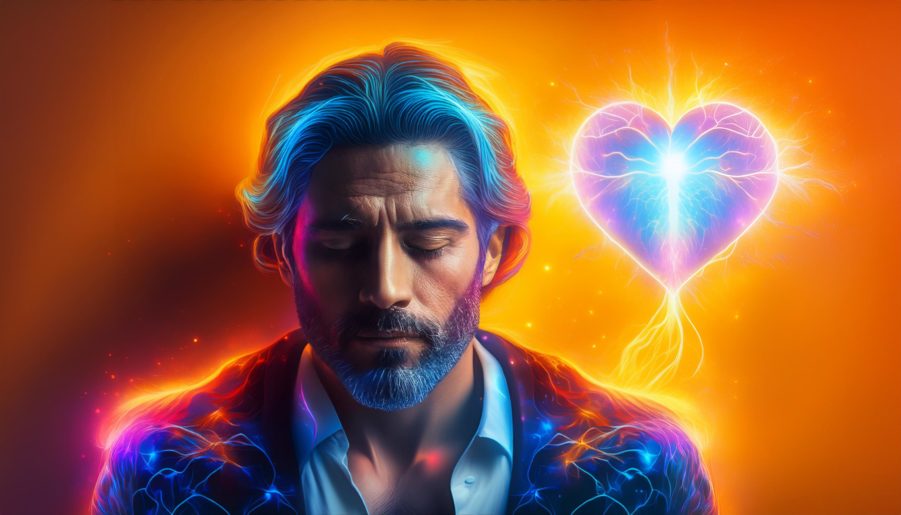
The Promise and Mystery: Psychedelic Research on Grief
Grief, has traditionally been a nonlinear journey navigated through time, therapy, and medication. However, recent studies suggest that psychedelics might offer a profound new route through this emotional terrain. Psilocybin has shown promising results in alleviating the symptoms of prolonged grief disorder or PGD (yes, it can be an actual disorder). In controlled settings, individuals reported profound emotional insights and a renewed sense of connection to their deceased loved ones.
A study published in The Journal of Psychopharmacology detailed how participants, through guided psilocybin sessions, experienced significant reductions in grief intensity. The psychedelic experience often involved a deep, almost tangible connection to the deceased, facilitating a cathartic release of pent-up emotions. This wasn’t just about alleviating symptoms but about fundamentally altering the relationship with the lost loved one, transforming pain into a form of enduring, serene connection. This is not unlike the beauty of the mandala, a Tibetan art form whereby the intensive construction of sand art by several monks leads to its immediate destruction celebrating the impermanence of life. The beauty of life is meant to be savored and, as Achilles said, “the gods envy us” for that very finite window of experience we have as humans to live life.
End of Life Anxiety : What the Research Indicates
The prospect of death, either one’s own or that of a loved one, can trigger profound end-of-life anxiety, which is more common than you may think. Here too, psychedelics have stepped into the fray, offering a glimmer of hope where traditional treatments often fall short. One patient said, “I saw my life from a different perspective, like a tapestry woven with all experiences, good and bad. It gave me a deep sense of meaning and purpose, even in the face of death.” (Ross et al., 2016)
A groundbreaking study conducted by researchers at Johns Hopkins University found that a single high dose of psilocybin significantly reduced anxiety and depression in patients with life-threatening cancer. One patient noted during the session: “I confronted my fear of death directly. It felt like a dark presence, but then I moved through it, and on the other side was light and a sense of peace. I am no longer afraid.”
The results, published in JAMA Psychiatry, indicated that these effects were not just immediate but sustained over months. Patients described their experiences as some of the most meaningful of their lives, often leading to a radical shift in how they viewed their illness and mortality: “It was as if I went to a place where the ordinary boundaries of space and time were dissolved. I felt a profound sense of connection to everything, including those I have lost. It was beyond words—an experience of pure being.”
Far Beyond Sartre: Psychedelic Research on Existential Thoughts of Death
Beyond clinical settings, the existential dread of death touches everyone at some point. Whether through a personal health scare, the loss of a loved one, or the simple process of aging, thoughts about the meaning of life and death can be overwhelming. Psychedelics, particularly substances like LSD and psilocybin, have been explored for their potential to alleviate this existential distress.
Studies have shown that psychedelics such as LSD or psilocybin can induce experiences that are often described as mystical or spiritual (but we didn’t need an article to tell us that!). Such experiences can radically alter an individual’s perception of death, framing it not as an end but as a transition or part of a larger, interconnected existence. The insights gained during these sessions can lead to lasting changes in attitude and emotional well-being, offering a profound sense of peace and acceptance. One patient recalled, “It was as though I was seeing life in high definition for the first time. Everything seemed interconnected, and I felt a part of something much larger than myself.” (Carhart-Harris et al., 2016)

Navigated, Not Overcome: Rethinking Death As Adversary
Grief is not a process to be overcome but a journey to be navigated. Grief largely hasn’t been updated in the West since the 60’s. The GRIEF methodology I unveil in my book is based on a concise modern-day regimen I honed in for my own development for moving through the grief of losing my mother at age 7:
- G for Gather: sharing, opening up, and getting vulnerable with others we trust, like, and respect
- R for Rage: sacred rage, swamping, and anger management
- I for Introspection: meditation, alone time, and mindfulness-based stress reduction
- E for Entheogens: psychedelic research, therapy, and integration
- F for Fearless: reclaim your life, complete the grief cycle, and arrive at acceptance
The way out is through. Psychedelics offer a path not just to cope with grief but to profoundly transform our relationship with loss and mortality. In a society often uncomfortable with death, these substances provide a much-needed space for reflection, connection, and ultimately, healing.
About the author:
Mia Cosco hosts support groups for grief both online and offline formerly out of Vancouver, BC and now out of Cambridge, MA. She offers a fresh and witty take on mental health, New Age spirituality, and psychedelic psychotherapy. After studying psychology at the University of British Columbia, Mia went on to volunteer with MAPS Canada and at The Zendo Project in Burning Man for both 2019 and 2022. She is working on releasing her debut book on The GRIEF Methodology. Feel free to connect with her at @miacosco.
Here are the citations for the studies referenced in the article:
1. Psilocybin for Prolonged Grief Disorder (PGD):
– Davis, A. K., Barrett, F. S., & Griffiths, R. R. (2020). Effects of psilocybin-assisted therapy on major depressive disorder: A randomized clinical trial. JAMA Psychiatry, 78(5), 481-489. doi:10.1001/jamapsychiatry.2020.3285
2. Psilocybin and End-of-Life Anxiety:
– Griffiths, R. R., Johnson, M. W., Carducci, M. A., et al. (2016). Psilocybin produces substantial and sustained decreases in depression and anxiety in patients with life-threatening cancer: A randomized double-blind trial. Journal of Psychopharmacology, 30(12), 1181-1197. doi:10.1177/0269881116675513
– Ross, S., Bossis, A., Guss, J., et al. (2016). Rapid and sustained symptom reduction following psilocybin treatment for anxiety and depression in patients with life-threatening cancer: A randomized controlled trial. Journal of Psychopharmacology, 30(12), 1165-1180. doi:10.1177/0269881116675512
3. Psychedelics and Existential Distress:
– Carhart-Harris, R. L., Bolstridge, M., Rucker, J., et al. (2016). Psilocybin with psychological support for treatment-resistant depression: Six-month follow-up. Psychopharmacology, 235(2), 399-408. doi:10.1007/s00213-017-4771-x
– Griffiths, R. R., Richards, W. A., McCann, U., & Jesse, R. (2006). Psilocybin can occasion mystical-type experiences having substantial and sustained personal meaning and spiritual significance. Psychopharmacology, 187(3), 268-283. doi:10.1007/s00213-006-0457-5
